the $100,000 confession that changed how I see filmmaking
Watching a film becomes a completely different experience when its creator has already told you where it fails.
I received a message last month from
, a founding member of this newsletter who, like many of you, has skin in the creative game. He makes films. Specifically, he made a 19-minute historical drama called One Sweet Night about Ossian Sweet, a Black doctor in 1920s Detroit who defended his home against a racist mob. Andrew spent $100,000 of his own money on this passion project, and per TFS’ founding membership perks, I got tasked with writing an essay on it.In one of the links he sent me, I read his startlingly raw post-mortem where he systematically dismantled his own work. "I am going to be honest," he wrote, "I hope you buy the film (it's so cheap) and watch it and tell me what you liked and what you didn't," followed immediately by, "but this film disappointed me."
I nearly spat out my coffee. Who admits that?
I've sat through countless filmmaker Q&As where directors defend their most glaring missteps with the conviction of someone explaining why they meant to set their kitchen on fire. I've read interviews where actors insist their box office bombs were just "misunderstood by audiences." I've watched the entire industry develop an allergy to the phrase "I messed up" in real time.
Instead, Andrew offered an evisceration of his film's shortcomings. "I should have done a better budget prior to deciding to make the film," he confessed, a statement so forthright it feels almost transgressive in 2025.
Hollywood would rather you didn't see how the sausage gets made
The film industry has a lying problem.
This is a meticulously engineered, multi-billion dollar industry designed to convince us that filmmaking unfolds as immaculate conception. Directors execute pristine visions (they don't). Actors never hurl phones at assistants (they do). Nobody ever sits in a darkened editing bay, martini in hand, whispering "this is kinda shit, isn't it?" (they absolutely do).
I miss DVD commentaries – those gloriously unhinged time capsules where directors would gleefully disembowel their own creative decisions while the cinematographer laughed about that time the lead actor threatened to quit if they had to do another take in the rain. The Evil Dead commentary tracks became sacred texts precisely because Sam Raimi treated his technical disasters like merit badges. He'd cackle through stories of accidentally getting fake blood in Bruce Campbell's eye and just keeping the camera rolling. Nobody expected Raimi to weave some fiction about executing a flawless vision, they adored watching him narrate the chaos. The disasters weren't footnotes but the main text.
Cut to now. Film promotion has morphed into a performance where the Electronic Press Kit reigns supreme. Directors sit in identical beige hotel rooms answering pre-vetted questions with the spontaneity of hostage videos. One industry guide blithely notes that "the effectiveness of an EPK hinges significantly on the clarity of the initial brief" which could also be interpreted as publicist-speak for "we predetermined the narrative months ago, so stick to it or you'll never sit in the director's chair again." I've witnessed this firsthand with A-list directors' teams. Even what masquerades as candor nowadays involves a battalion of strategists calculating the optimal dosage of self-deprecation.
Social media, naturally, transformed the ‘talent’ promotional circuit into an ecosystem where devouring spicy wings on "Hot Ones" or awkwardly flirting with Amelia Dimoldenberg across a sticky laminate table now commands more cultural currency than a six-page New Yorker profile. In the same universe, Timothée Chalamet is ditching Vanity Fair to hang with Theo Von and Saoirse Ronan finds herself in Brittany Broski's "Royal Court". The internet has elevated being game from a pleasant quality to mandatory currency. Even our most solemn auteurs must now demonstrate they're "one of us" by enduring internet-coded formats designed less for discussing their work than for generating 45-second clips that read as “unscripted”.
And the choreography of it all grows more elaborate by the day: keeping your face neutral while Ziwe lobs deliberately uncomfortable questions, looking authentically surprised when Track Star plays your obscure second album B-sides. And while these formats claim to democratize celebrity access, they often fortify new boundaries around acceptable vulnerability. Go ahead and pretend to flirt, pretend to sweat, pretend to be shocked. Just don't you dare deviate from your PR-approved lines.
Andrew's essay illuminates what these formats methodically erase. His cinematographer and director squandered days "over-shooting the same beautiful shots, in love with the images but not the pace of the storytelling." J.D. Williams, starring in the film, pointed out that the director "was nervous and tried to edit the film in camera and didn't give us what we needed." The actor playing Henry Sweet "did a terrible job, created tons of drama on set" and has had no additional credits since the film finished.
These specifics matter. They strip away the mythology that creative work succeeds or fails based on vision alone. Andrew praises his script, his costume designer, and his production design in the same breath he criticizes lighting that's "too bright" and scenes that were "rushed because we were behind schedule." The contemporary entertainment ecosystem demands these successes and failures occupy entirely separate narratives. One Sweet Night reminds us they inhabit the same project, often the same day, sometimes the same hour.
watching a film with its creator's doubts in your head
I clicked "purchase" on One Sweet Night with the same mix of curiosity and dread I feel watching someone pull off a Band-Aid in slow motion. After Andrew's surgical dissection of his own work, how could I not brace for disaster?
I was wrong.
The moment the film opened, I felt that specific prickle at the back of my neck – the one that signals I'm watching something that transcends its budget constraints. The claustrophobia builds with such elegant restraint that I found myself adjusting my collar. No musical score needed when racial hatred has its own sonic texture – dogs barking, murmured threats, the gathering roar of a mob whose volume knob only turns one way. Andrew wasn't kidding about making the mob the score; he weaponized ambient noise into a character that stalks through every frame.
His script does exactly what independent film should: it assumes intelligence from its audience, dropping us into 1925 Detroit without those clumsy exposition dumps that plague period pieces. Instead, tension seeps through the floorboards of that beautifully realized Sweet home, accumulating like toxic gas until you're holding your breath alongside the characters.
I'll admit, I kept waiting to spot the Henry Sweet performance disaster Andrew flagged in his essay. Maybe I've subjected myself to too many student films over the years, but "disaster" feels like an overstatement. The performance registers as merely imperfect – a B-minus in a room with some A students, particularly J.D. Williams, whose ability to project dignity under pressure makes you understand why The Wire fans still stop him on the street nearly twenty years later.
Watching the film with Andrew's notes hovering in my mind created a strange, almost double-vision experience – the film as it exists, layered with the ghost-film Andrew still sees when he closes his eyes. This split-screen effect reveals what I've never seen articulated so clearly: creators don't watch their finished products; they watch everything that could have been.
Soderbergh hated his own film 15 seconds in
We've lost the whiskey-tongued filmmaker confessionals. The good ol’ meltdowns where directors would rather immolate their reputations than pretend their failures smell like anything other than three-day-old fish rotting in August heat.
So when Francis Ford Coppola practically waltzed into his Razzie nominations for Megalopolis, I felt that old familiar tingle. The five-time Oscar winner self-funded $120 million, watched it crater to a pathetic $14.3 million return, got absolutely decimated by critics (that 35% on Rotten Tomatoes has got to sting), and then – in a move of magnificent delusion – claimed victory.
"What an honor to stand alongside a great and courageous filmmaker like Jacques Tati who impoverished himself completely to make one of cinema's most beloved failures, PLAYTIME!"
The man transmuted catastrophic commercial faceplant into heroic artistic martyrdom through sheer force of will. He elevated box office disaster into principled artist stance: "In this wreck of a world today, where ART is given scores as if it were professional wrestling, I chose to NOT follow the gutless rules laid down by an industry so terrified of risk that despite the enormous pool of young talent at its disposal, may not create pictures that will be relevant and alive 50 years from now."
Steven Soderbergh approaches creative self-evisceration from an entirely different angle. While shooting The Underneath in 1995, Soderbergh experienced what can only be described as a creative nervous breakdown wearing the mask of an epiphany. "I was thinking, 'ok, six months from now I want to be in Baton Rouge with a crew of five people making a film using the same methodology I used when I started making films,'" he confessed.
The film embodied everything Soderbergh had grown to despise about his own artistic evolution: "I think it's a beautiful film to look at and I think the score is beautiful, but fifteen seconds I know we're in trouble because of how fucking long it takes to get through those opening credits...That's just an indication of what's wrong with this thing: it's just totally sleepy." Those fifteen seconds haunted him like a curse. He could pinpoint the exact frame where viewers would start checking their watches, the very moment his film began its slow death. While most directors speak about their misfires in grand, nebulous terms – "I lost my way" or "the studio interfered" – Soderbergh performed an autopsy, connecting minute stylistic choices (those interminable opening credits) to the film's terminal diagnosis (complete narcolepsy).
So he torched everything. Shot Schizopolis with a tiny crew on a microscopic budget over a period of nine months in his home town of Baton Rouge, Louisiana with himself in a dual lead role for the first and last time and no screenplay. He abandoned what he called "an increasing formality to the work that was not healthy" and explicitly rejected "the compromises and corruption of studio filmmaking."
Where Coppola's self-assessment operates as mythology-building, Soderbergh's functions as creative methodology. Both reveal how unflinching self-awareness serves creators beyond therapeutic release. Martin Scorsese's 26-year odyssey to make Silence showcases yet another dimension: relentless self-examination as fuel for persistence. "I just never gave up on it. I never gave up on me." Asked if completing this decades-long passion project provided satisfaction, he offered a surprisingly muted response: "There were moments when there was some gratification, there's no doubt...in the process of making the film."
Quentin Tarantino wields an entirely different self-evaluation toolkit. After Grindhouse flopped, he admitted: "I learned a big lesson with Grindhouse, and I try not to repeat the mistake." Yet he maintains absurd, almost religious faith in his own judgments: "I respect criticism, but I know more about film than most of the people writing about me. Not only that, I'm a better writer than most of the people writing about me."
Tarantino's ten-film limit might be the most honest thing about him. While he struts around like cinema's last authentic voice, this arbitrary retirement plan betrays a guy who's watched enough directors become zombies of themselves to know he's not immune. It's oddly intimate, this fear dressed as bravado.
The gap between Coppola transforming financial ruin into noble sacrifice, Soderbergh diagnosing his creative illness down to the specific frame, Scorsese's decades-long crawl toward Silence, and Tarantino scheduling his own obsolescence before it happens to him — they're all just different dialects of the same language Andrew speaks so plainly. Once audiences understand what filmmaking actually costs in human dignity, Hollywood's dream factory looks exactly like what it is: people in over their heads, trying desperately to pull something worthwhile from the chaos.
your next movie deal depends on pretending this one was perfect
A mid-tier horror director once confessed to me — three whiskeys deep at a bar far enough from the festival that no one would overhear — that his latest film was "absolute dogshit from frame one." He knew it during the shoot. Knew it during the edit. Knew it when the marketing team somehow cobbled together a trailer that looked better than anything in the actual movie. Yet there he sat at ComicCon the next month, smiling through those studio-friendly anecdotes about his "vision coming to life" and the "privilege of working with such talented actors." I asked him, point blank, why bother with the charade? He laughed into his bourbon. "You think anyone finances your next movie after you publicly trash your last one?"
Money, it turns out, speaks louder than artistic integrity (who knew!). Studios already view directors as unexploded PR bombs. The filmmaker who candidly dissects their failures transforms instantly into a walking liability for executives who need absolute confidence in their product pipeline. Investors want certainty, not nuanced post-mortems. Marketing departments require enthusiastic talking points, not creative autopsies. The machine demands the performance of mastery even when everyone privately acknowledges that yawning chasm between vision and execution.
For those rare creatures who've made it past their first green light, the ones with actual leverage, candor carries an entirely different and justifiable risk: be seen as someone who throws your collaborators under the bus. Do I need to go into the Lively-Baldoni discourse? Or the Karla Karla Sofía Gascón stuff? Or that one time when Andrew Davis called Tommy Lee Jones ‘crusty’?
There’s plenty of juicy examples here:
And I haven't even touched the multiplier effect for women and BIPOC filmmakers. Greta Gerwig simply cannot afford Tarantino's bluntness (thought experiment: try reading Quentin’s aforementioned quote in Greta’s voice). She lives in an industry primed to attribute any admission of uncertainty to her gender rather than the universal clusterfuck that is filmmaking. When Barry Jenkins spoke about production challenges on If Beale Street Could Talk, I watched him measure every syllable, knowing critics were ready to use any perceived weakness as evidence supporting why "these kinds of films don't connect." One candid interview becomes career-limiting ammunition.
Cultural differences add yet another layer most of us Western critics completely miss. In Japanese artistic tradition, imposing your interpretation on the work diminishes the viewer's experience. Our Western fetishization of artistic self-flagellation blinds us to equally valid approaches from filmmakers who understand that stepping back, simply saying "I offer this for your interpretation", carries its own kind of honesty.
I also think about the psychological minefield that makes creative self-assessment practically impossible, even for the most self-aware directors. You live with a film for years. Dreaming it, planning it, shooting it, cutting it, defending it against both studio notes and your own doubts. Stockholm syndrome inevitably sets in. Flaws transform into features through a psychological torment I've felt through filmmaker friends. That meandering second act? Intentional pacing. Those wildly inconsistent performances? Deliberate tonal variation. Your mind constructs perfect excuses for creative compromises because the alternative, admitting fundamental failures in your artistic vision, feels like acknowledging a piece of yourself is broken beyond repair.
All these complications don't invalidate the value of creator honesty; they help us understand why it's so fucking rare. When Andrew tears into his own film, he’s giving us a peek behind that elaborately maintained fiction of an industry built on collective make-believe. The filmmaker who finds ways to speak truthfully despite all these powerful forces working against them gives us permission to see creation as beautifully human, complete with false starts, dead ends, and unexpected discoveries.
we need more messy origin stories
So perhaps the conversation worth having isn't just honesty versus deception, but whether we can handle a more complicated relationship with how art actually happens. I've come to believe that the fantasy of the solitary genius executing a flawless vision isn't just misleading but actively harmful to young filmmakers who think their struggles indicate failure rather than the normal birth pangs of making something from nothing.
We desperately need more messy origin stories. More Soderberghs admitting they hate their own work. More Andrew Morrows documenting how casting the wrong actor can derail an entire production. Because without these confessionals, we're left with a sanitized version of filmmaking that bears no resemblance to the beautiful catastrophe that actually unfolds when humans try to turn dreams into something you can watch on a screen.
Andrew mentions writing his script in the Dominican Republic during the weeks after his older sister's passing. That detail hit me like a ton of bricks because it exposes the raw honesty that permeates his post-mortem. The film exists in that tender space between grief and creation, which might explain his willingness to strip away those comforting myths we tell ourselves about our work.
I keep coming back to this image of Andrew flying to New Jersey to pick up props, firing a producer who was in over her head, watching his director waste days overshooting beautiful but useless footage, dealing with an actor who "talked to us like he was Denzel Washington," selling his freshly renovated set to a Detroit poet, and pouring eight years of savings into nineteen minutes of screen time. These moments constitute the actual creative process: the film beyond the film.
I wish every film student knew about One Sweet Night. Yes, it has flaws, but the gap between what Andrew imagined and what he created holds more wisdom than a thousand "how I made my breakthrough film" articles where directors pretend everything unfolded according to some brilliant master plan. Creative work lives in that very gap.
Next time you watch a film that moves you despite its rough edges, remember One Sweet Night. Remember that 19 minutes of screen time cost someone eight years of savings and a 15-hour U-Haul drive. Remember that the visible seams in any creative work reveal human hands reaching beyond their grasp. That reaching, that striving, tells the story worth hearing.
A final note for people with taste 🫦
While the internet's prioritizing hot takes and SEO-optimized nothingness, I’m here trying to build a sanctuary for people who believe film and television criticism can be thoughtful, accessible and fun all at once.
For the price of a truly mediocre sandwich, join the resistance with a paid subscription – it keeps independent film writing alive and the algorithms at bay.
Plus, you'll get exclusive access to After Credits, my monthly handpicked watchlist of films & tv shows that will stop you from doomscrolling AND access to my more personal takes and essays.
Now go forth and raise those standards, darling.
- Sophie x


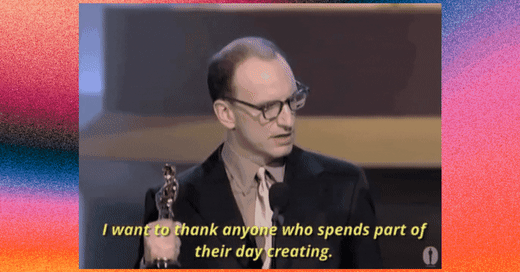


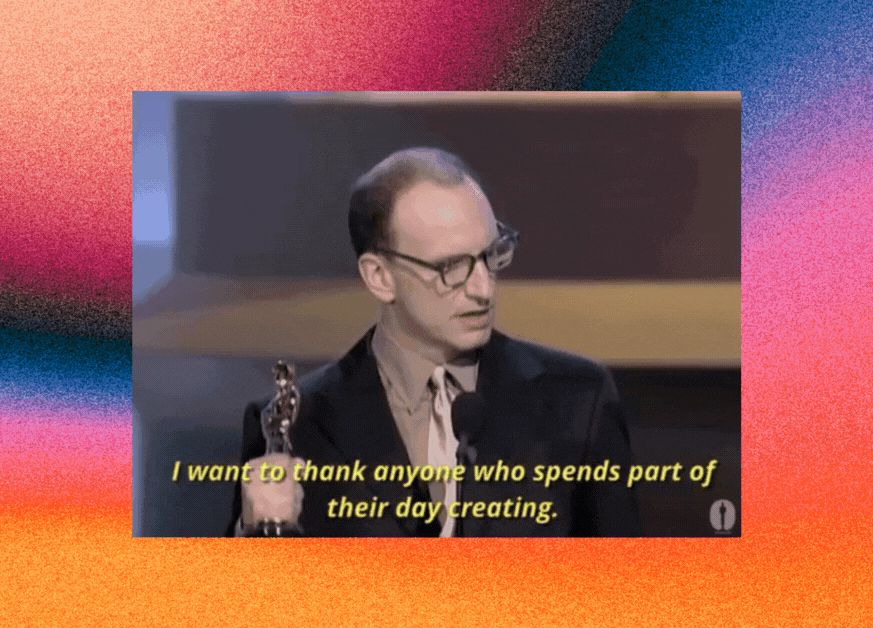
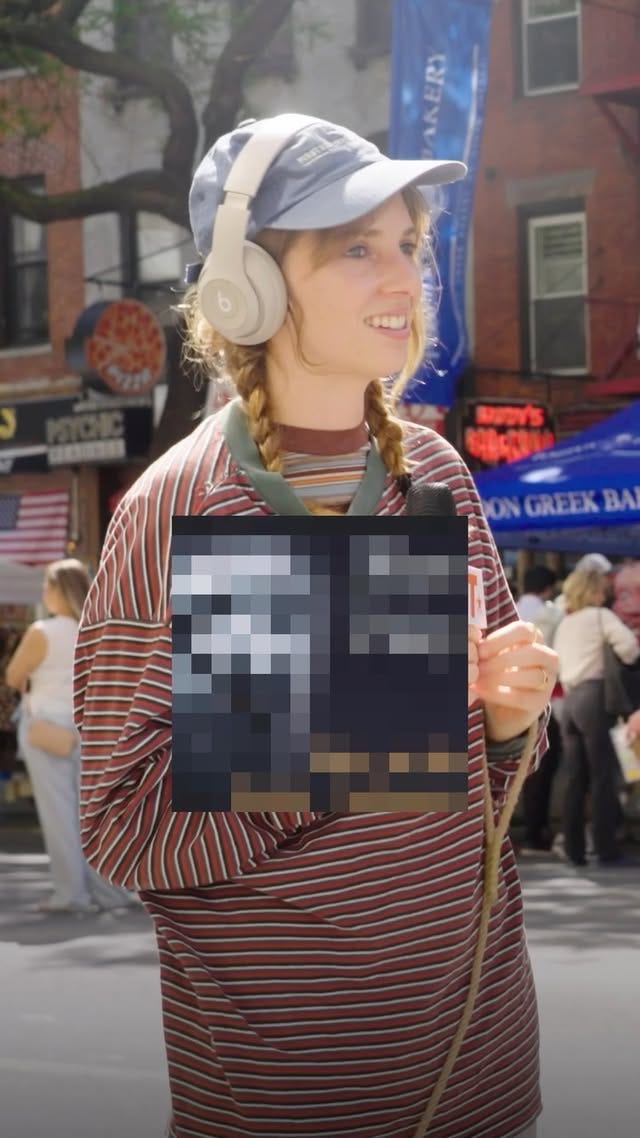
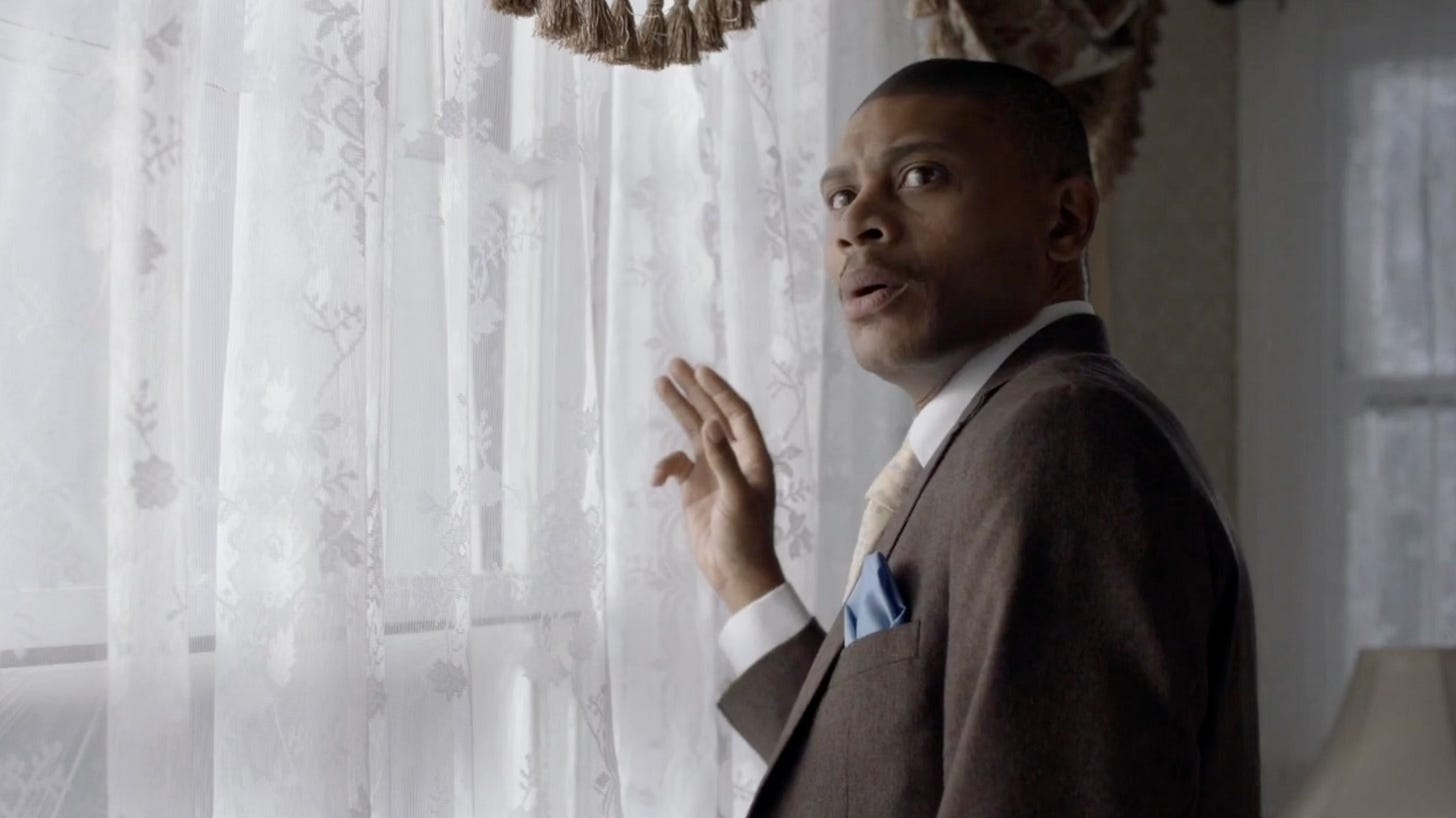
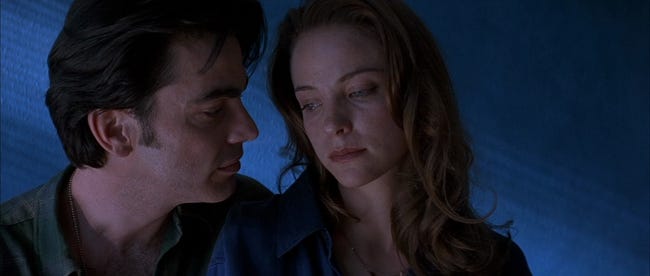
This really moved me. Thank you for seeing not just the film, but the grief, the chaos, the reach. I made One Sweet Night during one of the hardest seasons of my life, and your words reminded me that honesty—real, uncomfortable honesty—can still find a home. You didn’t just watch the film; you met it where it lives. I gotta share this essay and talk more about it. but for now, just thank you. This is the kind of response that makes the whole brutal process feel worth it.
This is exactly what I was trying to say! Thank you so much for your thoughtful comment. ♥️